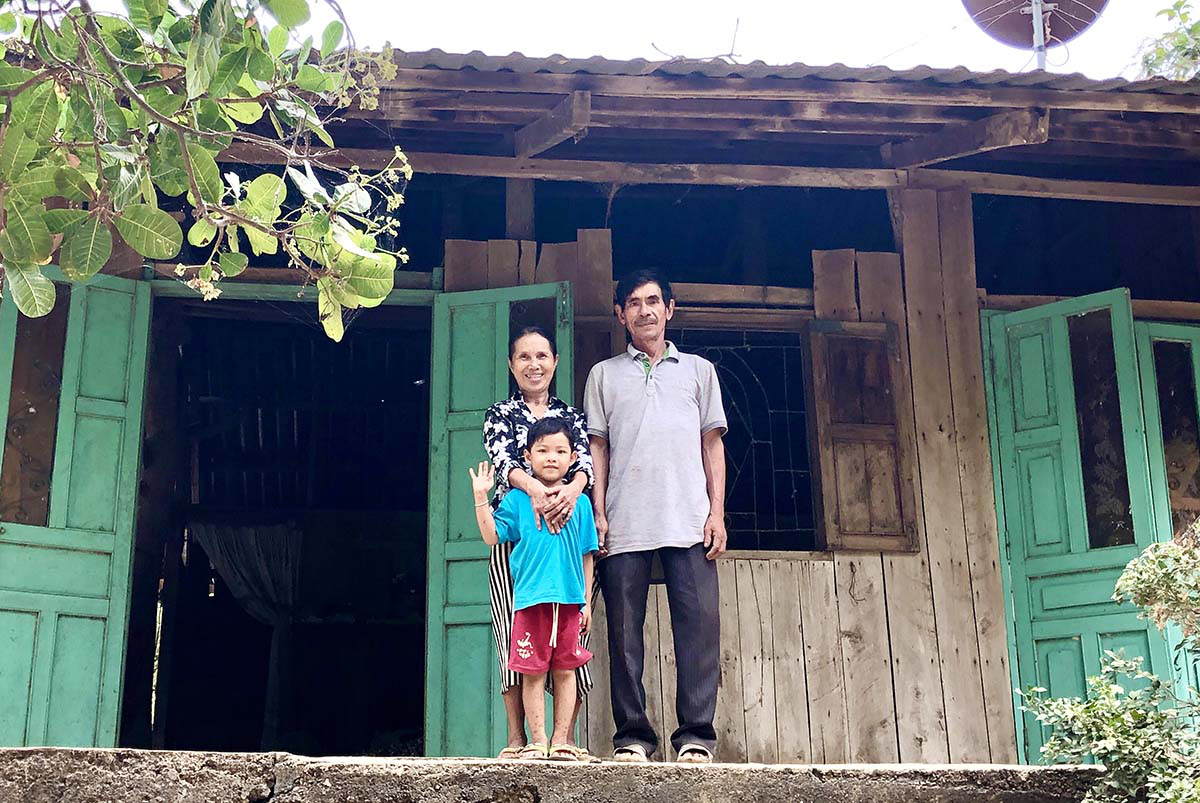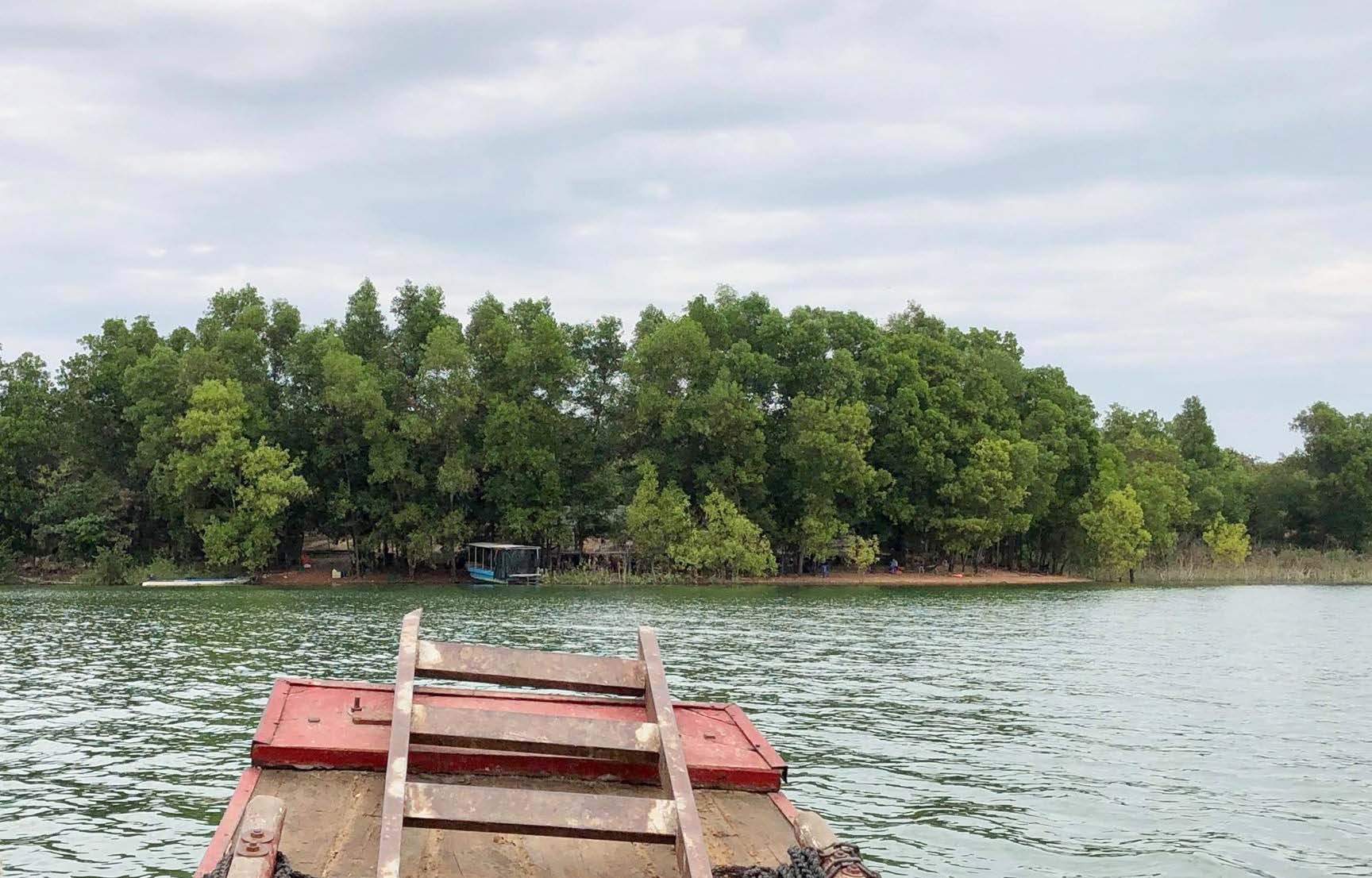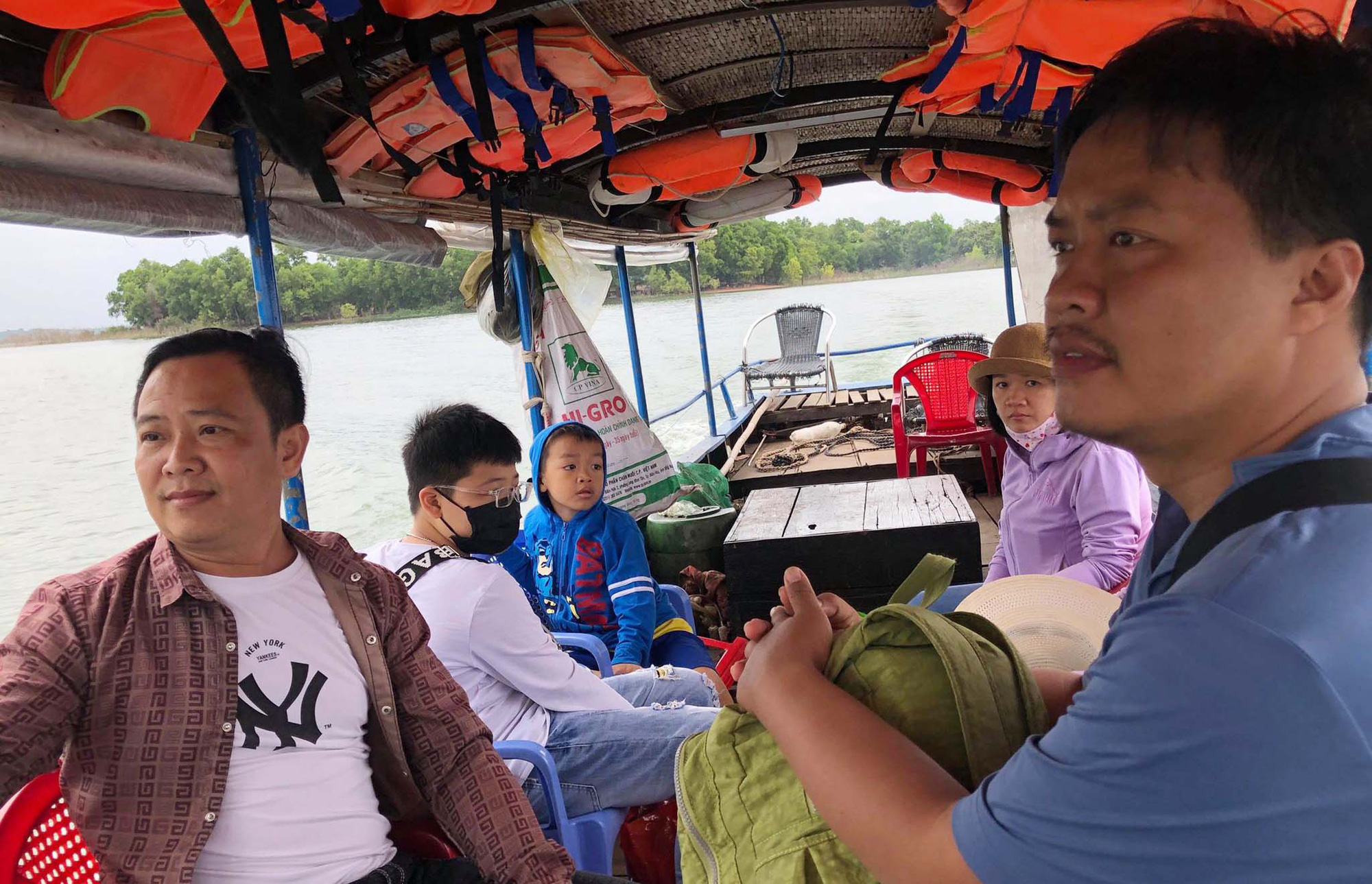A Vietnamese couple having spent years building a peaceful life together on their small, personal island in southern Vietnam now hopes to share their tiny piece of paradise with tourists from around the world.
Nguyen Van Long, 61, and his wife Tran Thi Thanh Nga, 59, cannot even fathom the idea of trading in their idyllic life on Nam Bau, a tiny islet off Ma Da Commune, Vinh Cuu District, located in the southern province of Dong Nai, for anything else in the world.
Vinh Cuu District, approximately 90 kilometers from Ho Chi Minh City, is home to Cat Tien National Park – the core of the UNESCO-recognized wildlife reserve and biosphere forest in Dong Nai.
Long and Nga’s off-grid island, accessible by a 15-minute boat ride, has been kept such a secret that even most locals have never heard of it.
Slowly though, that is changing as more and more local tourists make their way to Nam Bau to escape the hustle and bustle of city life in nearby Ho Chi Minh City.
Long, originally from Long An Province in the Mekong Delta, shared that the number of weekenders who make their way to the island from nearby cities has increased so much that he will soon need to hire full-time staff to help him and his wife provide for their guests.
While tourists are drawn in by Nam Bau’s utopian allure, clean air, and serenity, Long and Nga’s reason for starting a life on the four-hectare islet 36 years ago is much different.
An island of their own
Long was discharged from the army in 1984 and, with nowhere else to go, ventured into Dong Nai’s forest with several of his friends to find some land to live off and attempt to build a new life.
The group lived together in temporary shelters and made money doing odd jobs around the province, including collecting timber, planting sugar cane, and farming rice.
Things seemed to be going well until a heavy flood swept through the forest and washed away his entire crops.
“I was flat broke because I had invested all my money into growing the crops,” Long said.
The year of the flood was the same year as the construction of the Tri An reservoir, a hydroelectric dam and lake on the Dong Nai River, one of the longest in Vietnam.
After the river was dammed, the river became dotted with dozens of tiny islets. Long’s minute plot of land was one of these.
When Long’s wife, Nga, was pregnant and refused to leave the island to give birth, locals named the island ‘Nam Bau’ – a nickname she goes by – in honor of the woman’s connection to the islet.
As time went by, the island’s inhabitants slowly dwindled, due to a lack of proper accommodation, farming area, and accessibility to the mainland. Eventually, just Long and Nga were left.
With no money to relocate elsewhere, Long and his wife stayed put and raised their family on Nam Bau, only sending their children to live in Long An with their grandparents once they were old enough to attend school.
With electricity a luxury, the reclusive couple used kerosene lamps for light. It was not until a few years ago when they had rooftop solar energy panels installed and thus were able to use a television.
For water, they still rely on the local reservoir.
|
|
| The pastoral landscape on Nam Bau Island, snugly nestled off Ma Da, a commune in Vinh Cuu District, Dong Nai Province in southern Vietnam. Photo: Tuoi Tre |
According to Long, the lack of material comforts is offset by the island’s tranquility and the bonds they have developed with their neighbors on nearby islands and the mainland.
Occasionally, the couple takes a sampan to visit friends or go food-shopping in downtown Vinh Cuu.
“The neighbors used to drop by every now and then. They would give us their phone numbers in case we needed their help in an emergency,” Long shared.
Now, the couple lives off their homegrown mangoes, cashew nuts, and cajuput. They also farm livestock. Their three-hectare cashew plantation which yields three metric tons of nuts each year is currently their main source of income.
Long and Nga’s daily routine includes tending to the orchards, catching fish and selling their catch at the market, and taking their six-year-old grandson, Hieu, to school by sampan.
Hieu’s parents entrusted the little boy to the elderly couple soon after his birth as they live in a small rented house near the island and have their plates full carrying tourists to the island on a daily basis.
Long and Nga’s two elder daughters live with their own families in Long An.
“We’ve gotten way past the hardest part of living here and want to spend our last days here. We feel completely at ease,” Long said with a smile.
Unexplored weekend retreat
A few years ago, the couple decided to begin offering tourism services on their secluded island.
“I had never dreamed of catering to tourists like this,” Long shared, adding that his tourism ‘start-up’ began five years ago when a few weekenders asked if they could stay overnight.
When those guests returned for a second time, he built them a hut for shelter. Eventually, as word of Long and Nga’s hospitality spread, more and more tourists began arriving on the island.
|
|
| Tourists take delight in the landscape on their way to Nam Bau Island, off Vinh Cuu District in Dong Nai Province, Vietnam. Photo: Dieu Qui / Tuoi Tre |
As the island grew into a tourist magnet, Long began building more huts to house guests.
“It’s the first time I’ve taken my family and friends here to check out this spot after seeing it reviewed on the Internet. It’s such a great retreat for a weekend break near Ho Chi Minh City," Nguyen Anh Kiet, 36, from District 9, Ho Chi Minh City, said.
"We can leave the hustle and bustle behind and become one with nature. The hosts are really friendly too,” Kiet said, adding that his family’s itinerary included building a campfire at night and fishing during the day.
The guests also take great delight in the dishes Nga serves with food sourced right from her own farm.
Long said he plans to put up more huts and hire more staff in the near future to help cater to the increasing number of tourists.
Like us on Facebook or follow us on Twitter to get the latest news about Vietnam!



















































